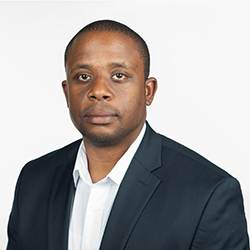Lewis Wheaton, associate professor in the School of Biological Sciences, won a council seat in Smyrna Ward 7 after the Nov. 5 elections. He ran on supporting local schools, limiting density, and attracting retail businesses.
In Georgia Tech, Wheaton strives to improve the lives of upper-limb amputees through a deeper understanding of the relationship between the neurophysiology of motor learning and prosthesis adaptation. Since joining Georgia Tech in 2008, he has been directing the Cognitive Motor Control Lab, which aims to understand the neurophysiological processes associated with motor control of the upper limbs.
Wheaton has been leveraging his scientific expertise into community service. In Georgia Tech, he is co-director of Georgia Tech’s working group on Race and Racism in Contemporary Biomedicine.
In the state of Georgia, Wheaton is a Governor-appointed member of the State Rehabilitation Council. Mandated by the U.S. Congress, this council oversees the Georgia Vocational Rehabilitation Agency. In this capacity, Wheaton helps shape rehabilitation policy and management in the state of Georgia.
Wheaton will serve for four years, from Jan. 1, 2020, through Dec. 31, 2023. Meanwhile he will also serve the remaining term of his predecessor, who retired before the election, leaving the seat open.
In the accompanying video clip, Wheaton reflects on his election as follows:
You know, it's remarkable when you think of civic engagement and civic leadership and being a scientist, there are a lot of similarities. It's about being thoughtful. It's about having very clear purpose, having expectations, having goals, and even honestly, having hypotheses, right?
If you think about planning a particular community or thinking about planning a particular road in an area, you have to have an expectation that that road is actually going to be beneficial that’ll actually fit in. It's the same mindset that you do in science, right. You have a project; you have a thought; you think of how this could work, and you, based on those hypotheses, you execute.
Probably the biggest difference is that typically in city management those things are hard things; there are actually structures and things. In science, it doesn't always have to be a hard thing, so that'll be part of the fun.
But really, it's the same concepts. It’s the same ideas, and it's the same very thoughtful approach and really having an innovative approach that guides all of this.
For More Information Contact
A. Maureen Rouhi, Ph.D.
Director of Communications
College of Sciences



